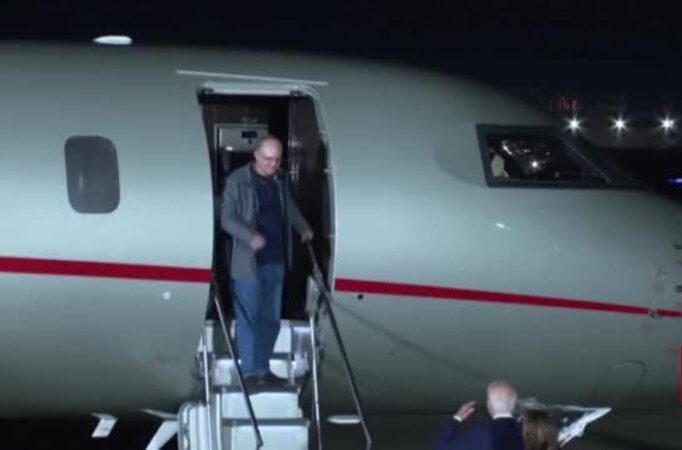BTN News: In a significant diplomatic move, three American citizens have been freed from Russian detention in a high-stakes prisoner swap and have safely returned to U.S. soil. This operation marks a critical step in international relations, showcasing the efforts and negotiations carried out by the United States government. However, this moment of relief is shadowed by the somber reality that several other Americans remain imprisoned in Russia, their fate uncertain. President Joe Biden has reaffirmed his commitment to securing their release, emphasizing that the government will continue to exert all possible diplomatic pressure to bring these individuals home.
The successful repatriation of these three citizens underscores the complexity and urgency of international diplomacy. Each exchange involves intricate negotiations and a balancing of geopolitical interests, reflecting the delicate nature of such operations. The emotional reunion of the released individuals with their families is a poignant reminder of the personal stakes involved in these international dealings. The identities of these citizens and the circumstances leading to their detainment have not been disclosed, adding an element of intrigue and concern over the conditions faced by those still held captive.
Despite this victory, the U.S. administration faces ongoing challenges. The plight of Americans still detained in Russia is a matter of national concern, drawing attention to the broader issues of international justice and human rights. The Biden administration’s approach to these delicate situations involves leveraging diplomatic channels, advocating for fair treatment, and seeking every possible avenue for negotiation. Each case is unique, often entangled with broader geopolitical tensions that complicate straightforward resolutions.
President Biden’s resolve to bring all detained Americans back home remains steadfast. His administration is working tirelessly behind the scenes, collaborating with allies, engaging in direct dialogues with Russian counterparts, and utilizing international platforms to highlight these cases. The commitment to these citizens and their families is unwavering, reflecting a deep-seated principle of leaving no one behind.
The broader implications of such prisoner exchanges extend beyond individual cases. They serve as a barometer of the current state of U.S.-Russia relations and highlight the ongoing tensions between the two nations. These situations test the limits of diplomatic negotiation, revealing both the potential for resolution and the persistent challenges that define international relations in a complex world.
In conclusion, while the return of these three Americans is a moment of triumph and relief, it also underscores the ongoing struggle faced by others who remain in captivity. The U.S. government, under President Biden’s leadership, is committed to securing their release, emphasizing that diplomatic efforts will continue unabated. This situation serves as a stark reminder of the human element within the broader geopolitical landscape, where every individual’s freedom is a matter of profound national importance.


